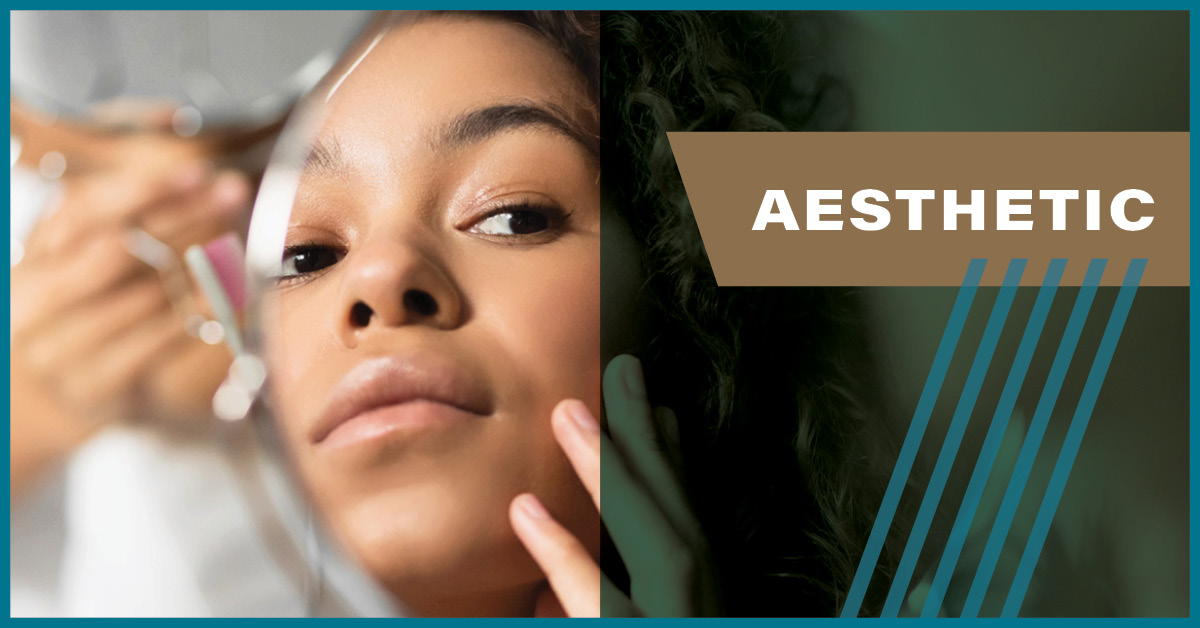
The aesthetic industry is enormous – estimated at $86.2 billion worldwide in 2020 alone. There are countless products and procedures, all promising to make you look better, younger, fitter. But what really works? Are any of these actually bad for your health? And do you have to rely on serums and shots, or is there another way – a better way – to improve aesthetic wellness from the inside out? These are the questions I discuss with my patients at Evoke 5 Medical Center, and I’m pleased to share some of my go-to resources with you here.
Xenoestrogens in Skincare: Why and How To Avoid Them
Did you know conventional, chemical-laden skincare products can worsen or actually cause skin conditions – or even lead to other serious health problems? The most common culprit is xenoestrogens, a group of endocrine-disrupting chemicals that mimic estrogen, our body’s natural hormone. Having too much estrogen can lead to a host of symptoms, and even increase your risk of cancer, especially breast cancer. This article explores what xenoestrogens are and why we should care about them, who should be most careful, harmful skincare ingredients to watch for, and how to switch to safer skincare options. Learn more
What You Need to Know About Aging Skin
How your skin ages depends on things you can’t control, like heredity, as well as things you can control, like your lifestyle, diet and personal habits. In this article, a dermatologist shares about the visible signs of aging, below-the-skin changes that come with aging, the importance of protecting your skin from the sun, and other factors that cause skin changes. Learn more
How to Have Your Best Skin in Your 40s, 50s and 60s
Most aging is influenced by genetics, ethnicity, sun exposure, and what you do (or don’t do) to care for your skin. This article details anti-aging essentials for people in their 40s, 50s and 60s. For example, in your 40s, retinoids, vitamin C and SPF 50 sunscreen should be in your toolkit. In your 50s, dermarolling (or microneedling), Fraxel laser treatment and, of course, SPF 50 sunscreen are recommended. In your 60s and beyond, volumizers, such as Sculptra and Voluma; fillers, such as Radiesse, Restylane and Juvederm; and Ultherapy or ultrasound therapy are options for helping you look youthful. Learn more
Reverse Sun-Damaged Skin with These 3 Essential Steps
Did you know that 80% of visible aging is caused by the sun? For any age and time of the year, there are three easy steps you can take to protect your skin. First, use sunscreen to protect yourself without avoiding the outdoors. Second, reverse sun damage with the use of niacinamide, azelaic acid, topical retinols and retinoids, vitamin C, and alpha hydroxy acids. And third, be sure to cross-check the ingredients in your skincare regimen to see if they contain ingredients that may cause photosensitivity. Learn more
20 Best Organic Skincare Products and Brands to Try ASAP
The terms “non-toxic,” “green” and/or “clean” are great things to see on your skincare products, but believe it or not, those terms are worthless because they’re not regulated by the FDA. That means you need to do some homework on your own. To help you get started, Cosmopolitan put together a list of 20 organic and natural skincare products from trusted brands that work closely with third-party certification agencies to ensure that everything from their packaging to their ingredients are safe for your skin and the planet. Learn more
Natural and Organic Skin Care
Greenwashing is a term used to describe, for example, when a company calls a product “organic” because it contains trace amounts of an organic product, even when most of the rest of the ingredients are artificial. Unfortunately, it’s a practice that runs rampant in the unregulated beauty industry. In this article, goop encourages us to become familiar with ingredients, read labels, shop at clean-only retailers, and check for product ratings on the Environmental Working Group website. They also share their favorite brands and must-have products made with natural and/or organic ingredients. Learn more
Everything You Want to Know About a Vampire Facelift
Let’s face it: A vampire facelift sounds like a Halloween horror movie. But in reality, it’s a procedure that’s been around for a long time and can make the skin look less wrinkled, firmer and more elastic. This article explains what a vampire facelift is (a cosmetic procedure that injects the patient’s blood and hyaluronic acid filler), safety and convenience considerations (it’s a noninvasive procedure with minimal downtime), cost (which ranges from $1,500 and $2,500) and efficacy (results usually last about a year). Learn more
In my functional family medicine practice at Evoke 5, I also believe in building beauty from the inside out through lifestyle choices including diet and the use of supplements. If I can help you learn more and move forward in your journey to aesthetic wellness, please get in touch.
